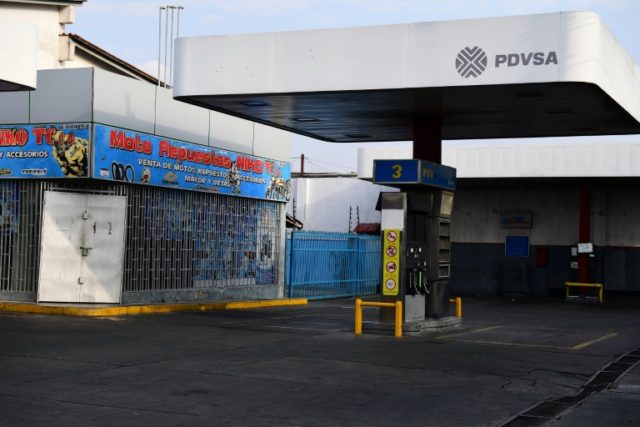Caracas (AFP) – Venezuela’s government suspended work and classes Friday due to a massive electricity blackout that has ground much of the country to a halt, the vice president said.
President Nicolas Maduro — who has denounced the blackout as an act of “sabotage” — made the decision “in order to facilitate efforts for the recovery of electricity service in the country,” Vice President Delcy Rodriguez tweeted.
The government said the blackout was affecting 23 of the crisis-wracked country’s 24 states.
The blackout in the capital was total and hit at 4:50 pm (2050 GMT), just before nightfall. Caracas is one of the world’s most crime-ridden cities, so people set out for home early, well before the sun went down.
Traffic lights went out and the subway system ground to a halt, triggering gridlock in the streets and huge streams of angry people trekking long distances to get home from work.
Telephone services and access to the internet were also knocked out.
The capital’s international airport was hit, according to social media posts from would-be travelers.
A Copa Libertadores soccer game in the city of Barquisimeto was postponed.
Venezuela is “victim of the imperial electrical war!” Rodriguez tweeted.
“United Venezuelans will win. The putschists will not pass.”
– ‘Tired, exhausted’ –
Venezuelans are wearily accustomed to blackouts. They have been common in the west of the oil-rich country for years, but have eventually spread to Caracas and other areas.
“We are tired. Exhausted,” said Estefania Pacheco, a sales executive forced to walk 12 kilometers (seven miles) from her office in eastern Caracas to her home across town.
“It is so sad every time this happens,” said the mother of two.
Critics blame the government for failing to invest in upkeep of the electrical grid, although the government often blames external factors when the lights go out.
The state power company Corpoelec said there has been sabotage at a big hydroelectric plant called Guri in Bolivar state, one of the largest in Latin America. It gave no details.
The Guri plant also supplies cheap electricity to the neighboring Brazilian state of Roraima, which has had to resort to using its own, costlier thermoelectric plants following the power cut in Venezuela.
“During the night, attempts were made to restore the Brazil-Venezuela interconnection, but it was not possible because it presented a lot of instability,” Roraima Energia said.
The only one of Brazil’s 27 states not connected to its national grid, Roraima gets half its supply from the Guri plant.
Maduro is struggling in the face of a challenge by opposition leader Juan Guaido, who has declared himself interim president and is now backed by some 50 countries led by the United States.
Guaido says Maduro’s rule is illegitimate, arguing that his re-election win last year was fraudulent. He wants Maduro to resign from the Miraflores Palace and make way for new elections.
US Secretary of State Mike Pompeo said Maduro is wrong to blame the US or any other country for Venezuela’s woes.
“Power shortages and starvation are the result of the Maduro regime’s incompetence,” he tweeted.
Guaido tweeted that Venezuela has plenty of hydroelectric plants and more.
“We have water, oil and gas. But unfortunately, we have an usurper in Miraflores,” he wrote.

COMMENTS
Please let us know if you're having issues with commenting.